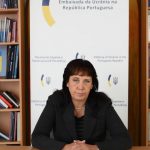Interest rates to rise
A former Bank of Portugal governor, Vítor Constâncio, has warned this week that interest rates will start to begin a “round of increases”.
The man who was also the vice-governor of the European Central Bank (ECB) spoke to ECO online as key figures within in the ECB were set to hold a meeting this week. Constâncio warned: “There are no doubts that interest rates will begin to rise” but called on his former ECB colleagues to pursue “sensible and gradual increases”.
An increase in interest rates would be used to try and slow rising inflation in the Euro Zone. Moreover, Vítor Constâncio warned that this “restrictive monetary policy should respect “sensible and gradual” increases.
On Monday, the price of Brent crude oil soared to US$ 139.13 a barrel at one point, the highest level since July 2008, while the price of natural gas hit 800p per therm on Monday, which is four timed the level it was before the invasion of Ukraine.
The price of bread and allied products such as cereals also soared as the invasion already made a tight supply of corn and wheat even tighter. Wheat prices have jumped 37%, and corn price soared 21% so far in 2022 after rising more than 20% in 2021.
Prices of metals such as copper and nickel have also soared, to US$100,000 a tone in the case of nickel (by five times on the US$20,000 before the invasion) which is used in electric car batteries among countless other applications.
Petrol at the pumps in Portugal was already trading at €2.19 per litre on Monday, while simple diesel was selling at €1.9 per litre.
The inflation rate in the Eurozone has hit an historic maximum since 2000 at 5.8%, well above the 2% target set by the European Central Bank.
If, as threatened, the Russians cut Europe off from piped natural gas from Nord Stream 1 (deemed unlikely), this would cause gas and electricity prices to rise even more in Portugal, reports Mundo ao Minuto, although on Tuesday the Portuguese Minister for Foreign Affairs, Augusto Santos Silva stated “our exposure to Russian petroleum and gas is very low”.
The UK government announced on Tuesday that it would phase out Russian petroleum imports by the end of 2022, while the US placed a total ban on petroleum and gas products from Russia.










